The Russian Revolutions Of The 20th Century
The Bolshevik Revolution of 1917 came at a time when the world was engaged in The Great War, and the Russian Romanov Kingdom was under intense scrutiny, which had suffered devastating losses since the turn of the century. Russia had been in a constant state of poverty for many years, with peasants forced to work the lands of the nobility in what is known as serfdom. It had always appeared very different than western Europe and was considered a backward society. However, with the start of the Industrial Revolution, Russia began to transform drastically.
FEATUREDHISTORY


bishop
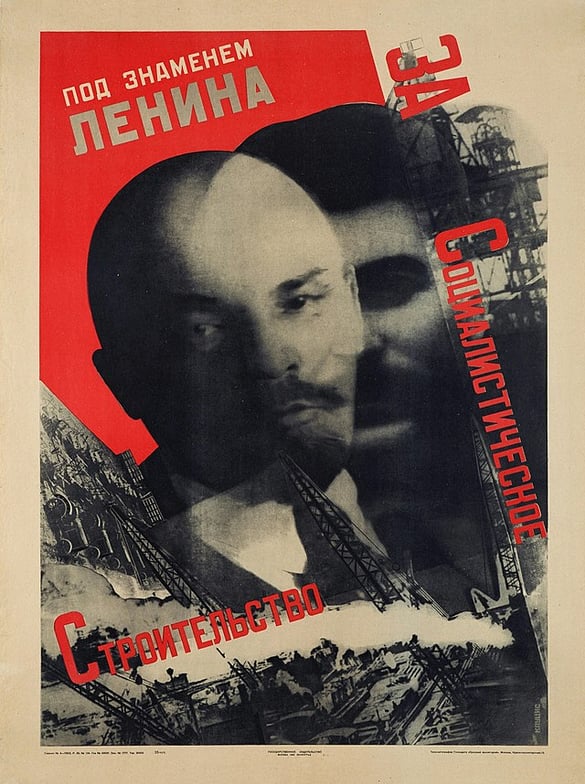

The Bolshevik Revolution of 1917 came at a time when the world was engaged in The Great War, and the Russian Romanov Kingdom was under intense scrutiny, which had suffered devastating losses since the turn of the century.
Russia had been in a constant state of poverty for many years, with peasants forced to work the lands of the nobility in what is known as serfdom. It had always appeared very different than western Europe and was considered a backward society. However, with the start of the Industrial Revolution, Russia began to transform drastically.
The Agricultural Issue
The Tsar emancipated the peasants in 1861 and outlawed serfdom, and planned to have them own their own lands. The land was to be sold to the peasants through an allotment payment system. However, laws prohibited the peasants from selling the land, and they were forced to work it under the open field system, to prevent them from joining the proletariat or working class.
The land gifts were so insignificant that they were unable to provide for themselves or their family, and this led to hunger and famine. Known as a people to lash out, thousands of peasants proved their capacity for violence by ignoring authority and engaging in rebellious acts against the nobility and their property, causing massive destruction.
By 1903, the total amount owed on the peasant-owned lands had multiplied to a total of 118 million rubles.
The Issue regarding Nationality
There was also an issue amongst the nationalities of Russia. Russia was ethnically diverse, with Europeans being favored over Asians as well as Orthodox Christianity being favored over other religions.
One ethnicity that most Russians had an issue with was Russian Jews, which accounted for approximately 4% of the entire population. They lived horrible lives in Russia, were forbidden from owning lands outside of cities, were limited legally in attending school, barred from legal professions, denied the right to vote, and excluded from military service.
A campaign called ‘Russification’ was instituted, though not accepted well by the public, which aimed to dissolve ethnicity in favor of a more Russian Whole for the country.
The Issues Regarding Labor
The economic state of Russia prior to the revolutions had deteriorated to the point of famine in 1891. As Russia dabbled in policies of laissez-faire capitalism, productivity in agriculture fell to an all-time low. Its main export of grain fell to its lowest price, and its foreign debt grew to insurmountable proportions, due to the increasing need of imported goods.
Russia which up until then had been disconnected from the industrial revolution, executed government programs designed to put people back to work, which were directed the Imperial Finance Minister, Sergei Witte.
Though this did work, it pitted the proletariat ( the working class ), the agrarians ( the agricultural class ), and opinionated students together, and fueled ideas of revolution, with the proper amount of people to support it.
The Outcome of the Russo-Japanese War 1904 – 1905
Fought between the Imperial Empires of Japan and Russia over the control of Manchuria and Korean Empire, and is largely left out of the history books, resulted in devastating losses for Imperial Russia and its Tsar Nicholas II.
I will touch on the Russo-Japanese War in a future article, but the overall outcome brought Japan to the world stage as a great power and aided in the decline of Imperial Rule in Russia. It ended with the signing of the Treaty of Portsmouth, which was mediated by the President of the United States Theodore Roosevelt on August 23rd, 1905.
Before we begin on the topic of Russian revolution, I think it is fundamental that we learn who were the Romanovs and who were the various groups against them.
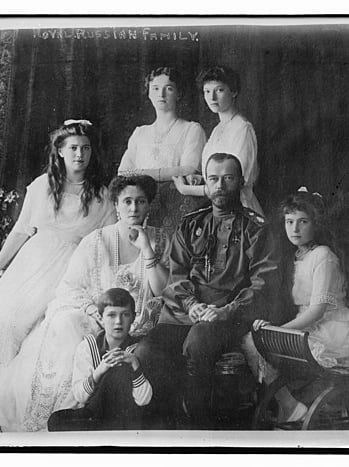

The Royal House of Romanov
The Royal family Romanov first appeared in the public record under Andrei Kobyla as a Boyer in the service of Semyon I of Moscow in 1347 and finally serving as the imperial house in Russia from 1613 to 1917.
A genealogy that was printed in the 18th century stated that Andrei Kobyla was the son of the Prussian prince Glanda Kambila, who fled Prussia in the 13th century, after being invaded by Germany, after the Old Prussian rebellion, which occurred from 1260 to 1274. However, this could be a myth as Feodor Nikitch Romanov proved his lineage to the Rurik dynasty, the ruling family of the Kievan Rus’. Both could also be true, as the Rurik link is through the mother of Feodor.
The marrying of Anastasia Zakharyina to Ivan the Terrible, Grand Prince of Moscow in 1547 and eventually Tsar, sealed the fate of the Romanovs, catapulting them to a higher status amongst the elites in Moscow as Anastasia was crowned Tsaritsa of Russia. Anastasia died mysteriously in 1560, thought to be poisoned by other Boyers in Russia, setting Ivan to live out his name, ‘The Terrible’. Ivan died in a fight in 1584, leaving the throne to his son Feodor.
Feodor himself died childless in 1598, and the thrown passed to Boris Godunov, also of the Romanov family. However, his death ended the reign of the Keivan Rus’ lineage.
The Romanovs remained in power in Russia until the Bolshevik Revolution in 1917, which resulted in the assassination of the entire ruling family at the hands of the Bolsheviks.
The Bolsheviks
The Bolsheviks, sometimes called Bolshevists, were a far-left faction that derived its ideology from the work by Carl Marx, called the Communist Manifesto, which split the Russian Social Democratic Labour Party (RSDLP) in 1903. Their ideology is commonly known as either Bolshevism or Communism.
At the 2nd Congress of the RSDLP, Vladimir Lenin and Julius Martov, over disagreements concerning membership rules and regulations of the party, split into the Bolsheviks and Mensheviks.
While Lenin only wanted individuals who supported the party on a full-time basis and who worked and lived in complete party obedience to be members, Martov wanted to allow anyone as a member that recognized the party and supported by whatever means they could.
For several years, the majority and minority status between the two new parties went back and forth within the RSDLP, until April of 1905 when the Bolsheviks held a meeting in London, called the 3rd Party Congress. It is there where an official split was cemented in concrete between them.
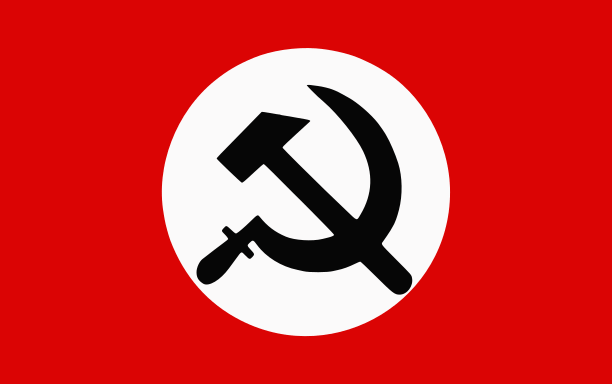

The 1st Revolution of 1905
The first attempt at revolution which aimed at overthrowing the Romanov rule in Russia occurred on January 22nd, 1905. It was led by a long forgotten Leon Trotsky.
It all began with a worker’s strike at the Putilov plant, which made rail components for trains and artillery for the military in Petrograd, now called St. Petersburg. The mood of rebellion was contagious and spread to 150,000 workers in over 380 factories. By January 21st, utilities had been shut down and all public areas were closed. On January 22nd, 1905 an Orthodox priest named Georgy Gapon led a worker’s march to the Winter Palace to deliver a petition to the Tsar the following day. The demonstrators were instructed to not cross a very specific line, and when they did, the military opened fire on the demonstrators. The death toll is still disputed to this day, and estimates range them from 200 to 1,000 deaths, on a day which became known as Bloody Sunday.
The massacre provoked a public outcry that was heard across all of Europe. Suddenly, the strikes spanned the entire Russian Empire in all industrial areas. By the end of January 1905, riots were taking place in Poland and consisted of 400,000 Polish citizens of Russian descent. Demonstrations subsequently were sparked in Finland, the Baltic Coast, and in Riga.
Within each demonstration in the east, there were demonstrators being shot by authorities everywhere. By the end of October, 2 million workers of the proletariat class were on strike and almost all railways were shut down. This combined with the losses sustained in the Russo-Japanese war, Witte was sent in to make peace again as he had done with the Treaty of Portsmouth.
The result of the first revolution saw the installment of the October Manifesto, a predecessor to the Constitution that would be established in 1906. The Russian State Duma was created, civil rights were established, the formation of political parties was also allowed. The Duma became the central legislative body in its newly formed constitutional monarchy, much like the United Kingdom is today.
The 2nd Revolution of 1917
The 2nd revolution, known as the Bolshevik Revolution or October Revolution was led by the Bolshevik Party under the leadership of Leon Trotsky as Vladimir Lenin watched from the sidelines. In just 15 years from the first revolution, the Bolsheviks managed to change the government in Russia from a multi-party system to a single party system.
Earlier in that year, in the month of February, the Provisional Government had been established as Nicholas II abdicated the throne, and his younger brother Michael declined the position. On October 10th, 1917, the Petrograd Soviet, led by Trotsky, voted to engage voted to engage in a military uprising. The city of Petrograd was subsequently shut down by the government, attempting to subvert revolution. Bolshevik sailors sailed into the harbor and many thousands of soldiers stood ready in support as Bolsheviks.
The Red Guard, under control of the Bolsheviks began occupying government buildings, under the direction of the Military-Revolutionary Committee, on the 25th of October. The next day, the Winter Palace in Petrograd was also taken.
Prior to the 2nd revolution, Vladimir Lenin and others responsible for the 1905 revolution had been forced into exile in Switzerland. Russia was currently at war with Germany and allied with France and Britain against Germany and the Central Powers. Passage back to Russia was not going to be easy. The passage had been negotiated to Russia on a sealed rail car for 32 Russian citizens, approved by the German government. Vladimir Lenin and his wife were on that train.
On November 7th, 1917, a coup d’etat succeeded, and the Provisional Government ceased to exist, as the Bolsheviks seized power. It will also be the end of World War I for Russia.
The Winter Palace was penetrated in a final assault, and the Romanov family was taken and imprisoned in the Alexander Palace. The family was then moved to Tobolsk, Siberia, then finally to a house in Yekaterinburg, where they would receive their execution. Nicholas II, his wife Alexandra Feodorovna, and their five children, Olga, Tatiana, Maria, Anastasia, and Alexei were all executed by Bolshevik revolutionaries, even though Nicholas II had previously abdicated.
Financing the Revolutions
The world events between 1850 and 1920 were rife with calamity, and it is so many. It is hard to view the events altogether. Not everyone even realizes that the American Civil War ending in 1865 was less than 50 years prior to the start of World War I in 1914. Sometimes when a timeline crosses a century divider, people tend to forget.
In less than 50 years, the cavalry went from riding on horseback to driving destructive metal machines of death, and the infantry went from line formations to fighting in trenches, utilizing guerrilla-type tactics. We would even see the introduction of weapons of mass destruction in the form of mustard gas used on the battlefield. I will touch on the civil war and this very important timeline in a future article, but it is so amazing how for millennia we were tied to horses and buggies, and within 50 years we were flying airplanes and committing mass genocide.
There has been much speculation as to who financed the revolutions in Russia. Let’s face it, the people performing the revolution were, for the most part, poor, starving, and lacked a voice within the Russian Tsarist government, yet a fleet of warships filled the harbor of Petrograd, supporting the revolution. Military arms were ready available as the Bolsheviks stormed the Winter Palace. How?
It is plain to see that money was flowing from somewhere when you compare it to the present day and see the endless flow of finances being poured into Ukraine today, which is in a struggle with Russia over its national sovereignty.
As one could fully understand, change was very much needed. The state of the social scene in pre-communist Russia was not a good state to be in. There was no equality, the rich upper class dominated the poor lower classes, and people were literally starving. No one seemed to care enough to share food with their fellow human beings. Change was bound to occur sooner or later, for better or for worse.
Is it possible that the need for change was hijacked, like many others have suggested?
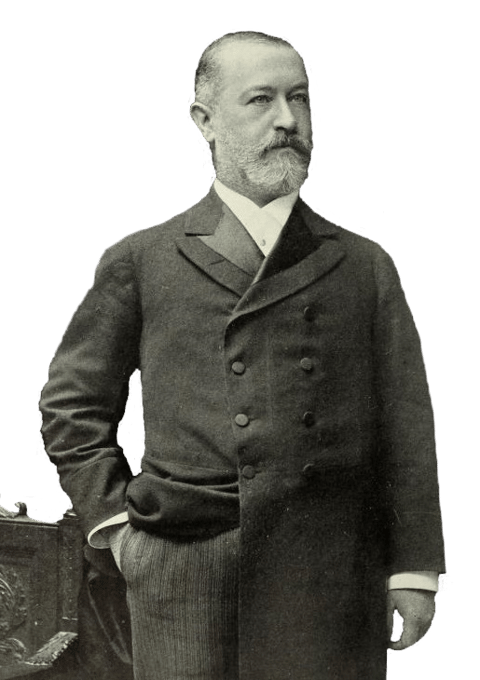

Jacob Schiff
A Jewish immigrant born in Frankfurt, Germany, and brother-in-law to Paul Warburg, he was a major contributor to the presidential campaign of Woodrow Wilson, a lobbyist for the Federal Reserve Act in America, and Head of Kuhn, Loeb, and Company was a very prominent individual named Jacob Schiff.
He was the most influential Jewish leader in his day, advocating for the majority of Jewish issues throughout the world during a time that would come to be known as the “Schiff Era” from 1880 to 1920. One of those issues was the treatment of Jews, who were in the minority at just 4% of the population, under the Tsarist rule in Russia.
Other Jewish issues he tackled included anti-Semitism (not only in America but around the world), the caretaking of poor Jewish immigrants, as well as the rise of Zionism (an international movement originally for the establishment of a Jewish national or religious community in Palestine and later for the support of modern Israel.) Merriam-Webster.com Dictionary, Merriam-Webster, https://www.merriam-webster.com/dictionary/Zionism. Accessed 13 Sep. 2022.
He went on to direct several large and influential corporations in America which included the National City Bank of New York, Equitable Life Assurance Society, Wells Fargo & Company, and the Union Pacific Railroad, usually partnered with Edward Henry Harriman, an Episcopal Christian and not of Jewish descent. The pair worked together, many times in competition against J.P. Morgan and Company.
I make the distinction between Harriman and Schiff as a non-religious affiliation due to Harriman being Christian and not Jewish because there are a lot of misconceptions that lead to all of this being one massive Jewish conspiracy. I firmly do not believe so. Like the Masonic connection, I do not find it to be a Masonic conspiracy either. I do not see it as a conspiracy to perform nefarious acts at all. Honestly, a lot of good things were done for a lot of people in need, at the moment.
In 1904, Kuhn, Loeb, and Co. raised the majority of fundraising for war loans going to Japan during the Russo-Japan War for a total of $200 million, all directed by Jacob Schiff. As a result, Japan was able to virtually lay to waste the Russian naval fleet, over a series of battles at sea.
Much like Ukraine in 2022, Japan was seen as the weaker opponent. Schiff admired the national desire to thrive over any cost and even offered to extend the loan in regard to this. It is also speculated that Schiff saw this loan as a direct way to avenge the harsh treatment of Jews in Russia, but this has never been stated in any context.
In rewarding Schiff for his contributions to Japan, he was awarded the Japanese Order of the Sacred Treasure in 1905. In 1907, he received the Japanese Order of the Rising Sun, the Gold Star, and the Silver Star.
During the years of the Russo-Japan War, which is largely left out of history books, Russian military personnel, mainly sailors who numbered approximately 70,000 men, were taken as prisoners and were targeted for a certain re-education, if they showed hostility to the Tsarist government in Russia. Pamphlets were distributed amongst the prisoners in an attempt to indoctrinate them into rebelling against the government, upon their return to Russia. The source and logistics in control of these pamphlets are still unknown today, but it is speculated they came out of New York.
In an article from the Times of Israel published on September 19, 2016, describes the Jewish scene on the Lower East Side of New York City and a very special meeting that took place, taken from a book written by Kenneth Ackerman called “Trotsky in New York 1917: A Radical on the Eve of Revolution.”
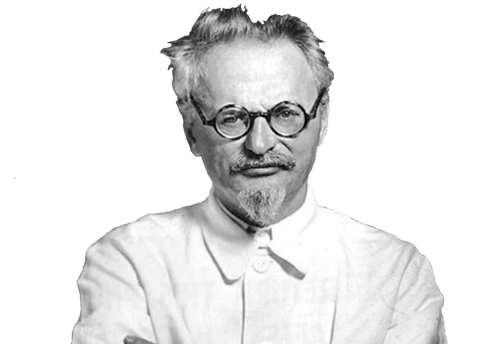

Between the years 1881 and 1917, the Jewish population in New York City was approximately 1/5th of the total population. The Jewish community was predominantly on the Lower East Side and was largely made up of immigrants fleeing imperial Russia. The views of the community were predominantly socialist and left by nature, with an outlook on internationalism as a whole.
After being expelled from Europe due to his call for a Marxist world revolution to overthrow the capitalist world order, He set his eyes on New York City.
Trotsky arrived in NYC in January 1917 and spent about 2.5 months there, prior to going to Russia to lead the Military-Revolutionary Committee which was the instrumental force in the dissolution of the newly established Provisional Government, during the Bolshevik Revolution.
It is described in the article, the care which Trotsky received while in NYC from the Jewish Community, in several instances. Trotsky was well known due to his outspokenness on the international stage for denouncing the Tsar for his harsh treatment of the Jewish people. His popularity amongst the Jewish Community in New York City is akin to a rock star.
Upon arrival in NYC, on his first day there, he gave an interview to the Foverts(The Forward) which was a Yiddish newspaper which rivaled the New York Times in total number of readers.
To the rest of the world, outside any Marxist groups or Jewish communities, he was relatively unknown, until after he came to NYC. But in just 2 ½ months, He would go back to Russia, start the red army, and in October he became one of the prominent figures orchestrating the Bolshevik Revolution. It is almost like he received a surge of power while in NYC.
This alone is interesting because at the time, during World War I, Americans were largely opposed to the war in Europe or anywhere for that matter. NYC was even seen as a hub for people with anti-war sentiment.
In NYC there was also much suspicion of socialists, labor leaders, and outsiders during those times. A lot of this was fed by the labor movements in America which began in the 1880s. Many of those labor leaders were from Eastern Europe and many were Jewish. The city was known for exploiting the labor class. The workers were made up mostly of immigrants who worked in sweatshops for 10 or more hours per day, for not hardly a dollar per day. As a result, the labor movements came forth.
“Jews were very active in radical movements and unions,… And as Jewish leaders became more visible, Trotsky became exhibit number one”
Trotsky in New York 1917: A Radical on the Eve of Revolution by: Kenneth Ackerman
There were two main conspiracies that were derived from all of this.
The first was the Bolshevik Revolution was created by the German military to defeat Russia, and subsequently Serbia in World War I. This makes some sense as Trotsky received $10,000 from an anonymous German source while in NYC.
The second, and most popular, is international Jewish bankers financed the Bolshevik Revolution, in what has been called a “Jewish Plot.” But why would bankers want to destroy a financial system that they just got established in the United States, the Federal Reserve, that made them wealthier beyond any measure? It just doesn’t check out.
Moreover, Schiff’s role in pressuring Russia with money is well known. He personally refused to allow his banks to finance Britain and France as long as they sided with Russia. Even the links between Trotsky and Schiff were from military intelligence officers who were known antisemites. The intelligence files themselves are full of racial slurs and allegations. As soon as Russia was overthrown, it is documented that his money never went to Russia again.
In his book, My Life, Trotsky shows how he was a major contributor to the revolution, as he was instrumental in the support of communism, centralizing the power, setting up the Cheka secret police, and creating the groundwork for a dictatorial communist state. All of which he later regretted as Stalin took power in 1924 and was forced out into exile. No one ever recognizes that Trotsky finally saw the evil that he helped to create.
Trotsky was assassinated in 1940 by a Russian agent while in exile in Mexico, under the direction of Joseph Stalin.
The Documented Proof
The proof of funds for the Bolsheviks initially flowed primarily from the seizure of fortunes from wealthy merchants, land-owning nobility, as well as Senior members of the Russian Orthodox Church. This is where the funds came from to overthrow the Tsar.
Once the Communist government was installed, funds flowed straight from the seized funds of the Romanovs. After the Russian civil wars were over, Roskombank, the first foreign trade bank of the USSR, was founded. In one of its first acts as a legislative power, the Soviet government nationalized the financial industry, and all assets of private bankers were confiscated by the state. After this, banking in the USSR existed only for the purposes of sponsoring foreign trade and rapid industrialization of a former agricultural society into a modern and competitive global superpower. If there were any international bankers involved, they would’ve lost everything they invested in the Soviet state.
There were telegrams that were shown as evidence that originated from Berlin to the revolutionaries in Russia, showing payment to the Provisional Government led by Kerensky, not the Bolshevik revolution which would come later. The reader must understand the difference. Though the Bolsheviks were involved in the establishment of the Provisional Government, the Bolsheviks didn’t rise to power until the Bolshevik revolution in 1917.
Clearly yes, Germany did in fact support the first uprising and the creation of the Provisional Government because the imperial rule was a direct enemy to Germany in World War I. In fact, German Intelligence allowed Lenin’s travel to Russia by a sealed train for the purposes used in the establishment of the Provisional Government, which was a unification of socialist left-wing parties. The Bolshevik Revolution and the overthrow of the Provisional Government reduced the ruling parties to 1, The Communist Party. So German financing was only crucial to one step and didn’t see the finalization in the second step coming.
Author’s Commentary
Clearly these events have been manipulated by both sides, left and right, to prove their case. Trotsky self-admittedly was not faithful to Jewish practices but used his Jewish influence and ancestry to further his socialist cause, later admitting he eventually became a crucial key to the construct of evil.
May I offer another perspective of reason?
It is proven time and again, that when men try to take power into their own hands and leave out divine influence from God, things become distorted. When man tries to further his own destiny instead of the will of God, the enemy takes over.
If these men would’ve had a personal relationship with Christ and listened to His counsel, would their paths have followed the same trajectory, or would another path have been provided? Clearly, change needed to take place in Imperial Russia. People were starving and even resorting to cannibalism.
Thoughts on philosophy and personal idealism that came from the enlightenment spawned many things, some good and some bad. But the idea that we can achieve anything on our own is always futile. When we are not doing what we are obligated to do by Christ, and we do not repent, everything fails.
If there was a more sinister and nefarious agenda at the root of these revolutions, spanning networks of bankers, opposing houses of royalty, and international entrepreneurial Jewish statesmen, we cannot be sure due to a lack of proof, then the framework for such a collaboration must’ve been installed long long ago. However, all the events are marred by a significant amount of coincidence and a global collaboration can’t be completely ruled out. Though the intelligence documents at several governments across the world are tainted with anti-semitism, they exist non the less. If international bankers were in fact involved, what would be their advantage? Would someone really engage in a fruitless undertaking that they knew would take away their control and give to another, not to mention the amount of money that would be lost? If they did, then they were taking orders. They weren’t the ones giving orders.
At the Cop26 Climate Summit in 2021, Then Prince Charles, who would become King Charles III in 2022, stated something that shocked those that are aware. Look at the transcript:
“…We also know that countries, many of whom are burdened by growing levels of debt, simply cannot afford to go green. Here we need a vast military style campaign to marshal the strength of the global private sector, with trillions at HIS disposal far beyond global GDP, and with the greatest respect, beyond even the governments of the world’s leaders….”
Beginning at minute 02:40 | Prince Charles COP26 Climate Summit Glasgow Speech Transcript | https://www.rev.com/blog/transcripts/prince-charles-cop26-climate-summit-glasgow-speech-transcript
Who was he referencing as ‘His’ in the above quote? Perhaps the framework does exist, though I’m sure its not a Jewish or Masonic conspiracy, though Jews and Masons could be involved.
When you lose your humility, become non-repentant, and do not submit to the will of God, men become capable of some of the most grotesque of ideas, finalizing in an act of self-annihilation.
If you feel that you are headed in this sort of direction, repent and submit to God’s will. I beg you.
